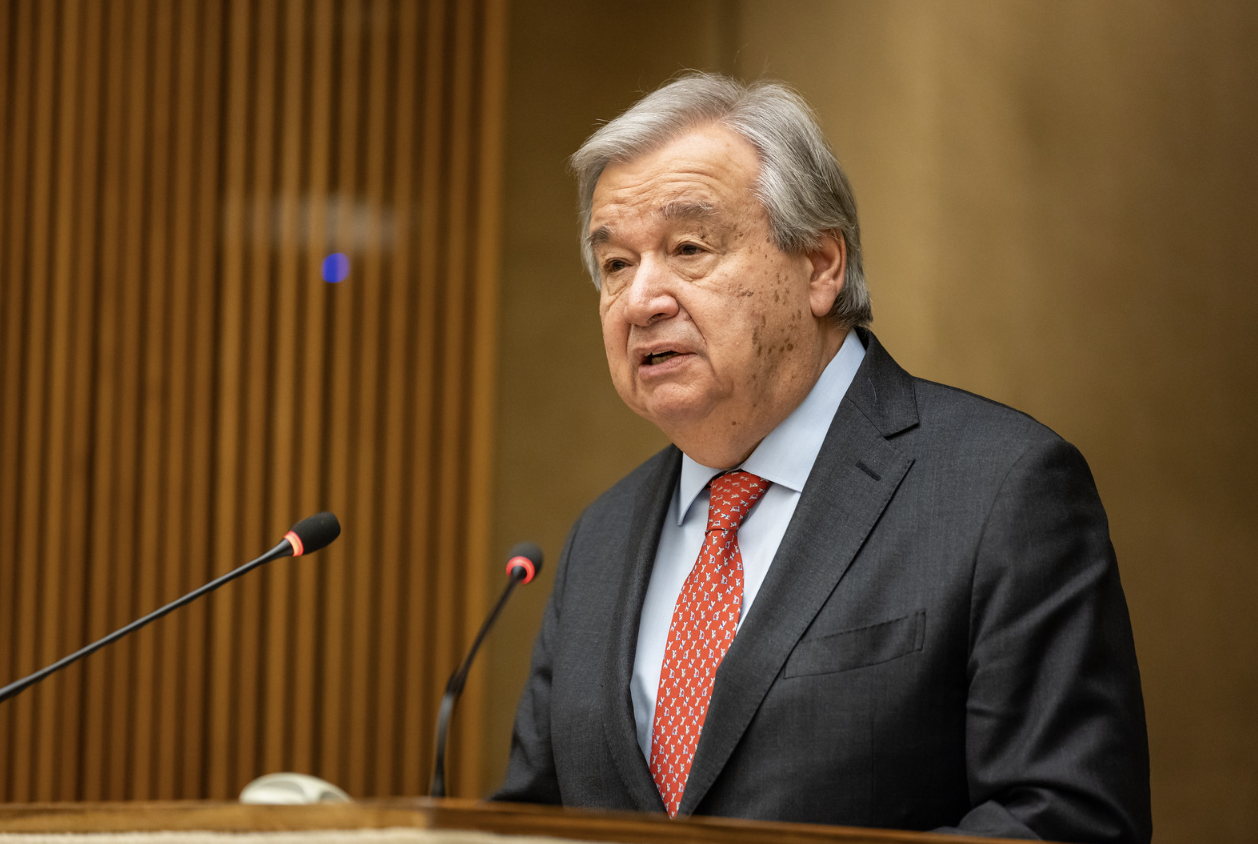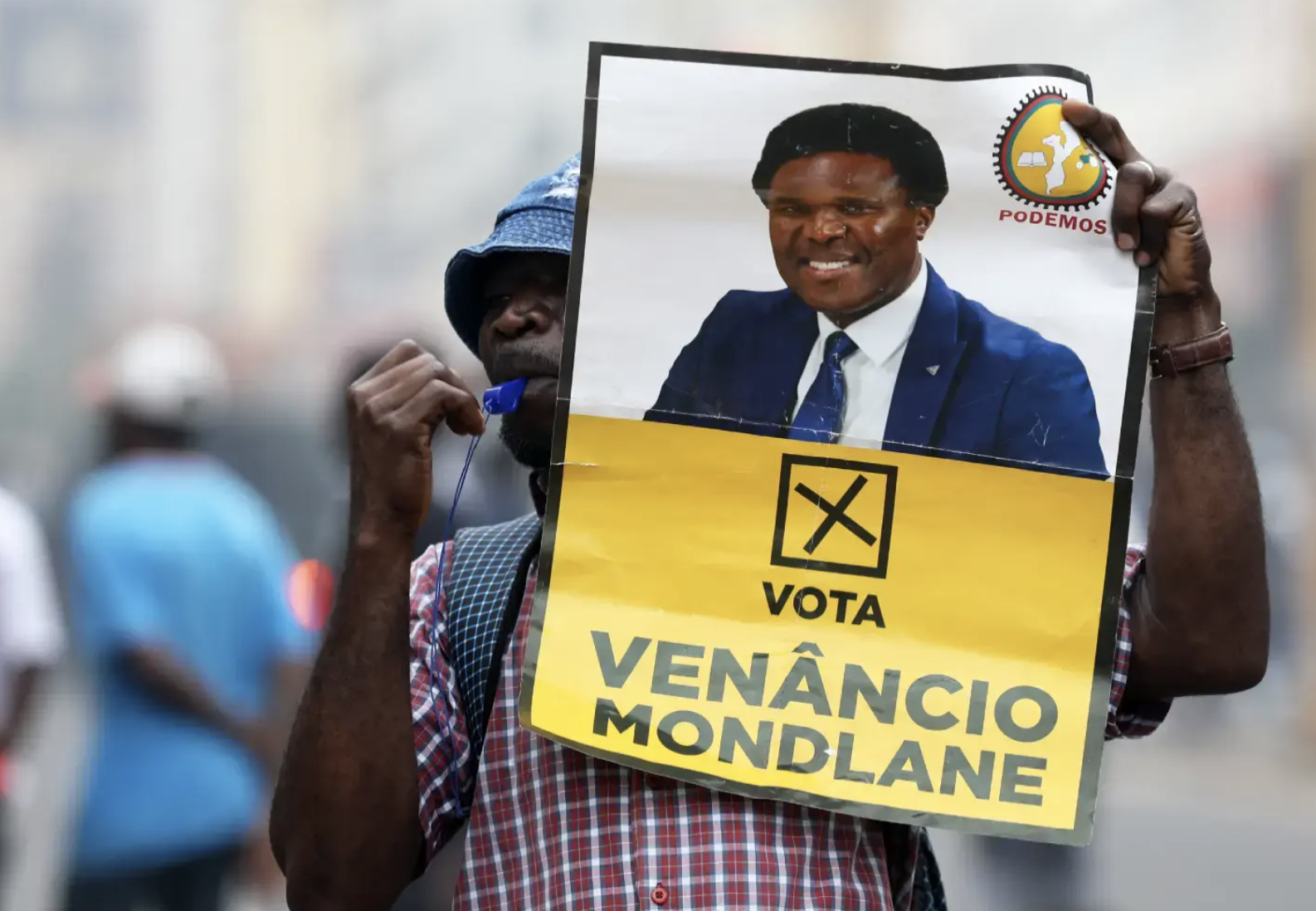News
Dear UN Secretary-General Guterres: Your Tenure has Been a Failure on Multiple Fronts
The world has become infinitely more dangerous under your watch since you were first elected Secretary-General in October 2016. Today we face several simultaneous regional conflicts, from the explosion of violence across the Middle East, the implosion of the government in Syria, the fighting across the Horn of Africa and of course, in the heart of Europe, following Russia’s invasion of Ukraine, in its own way retelling the horrors of 80 years ago.

By The Platform for African Democrats
Dear Secretary-General,
As the new year begins, the world looks once again to the United Nations, hoping for action to maintain world peace and order.
The UN was born out of the disasters of global conflict in the 20th century, the most violent in human history, and especially following the catastrophes of the First and Second World Wars when, to remind, more than 90 million people including 55 million civilians were killed or “allowed to die by human decision”, to adopt the historian Eric Hobsbawm’s phrase.
During the Second World War, warfare reached previously unimaginable extremes: mass mobilisation, industrialisation and total war reflected an entwining of ideology, warfare and perceptions of national survival. The UN was established in the wake of this tragedy at its core to make the world a safer and less volatile place. It is worth reminding of its purpose, as outlined by the Preamble to the UN Charter:
- To save succeeding generations from the scourge of war, which twice in our lifetime has brought untold sorrow to mankind;
- To reaffirm faith in fundamental human rights, in the dignity and worth of the human person, in the equal rights of men and women and of nations large and small;
- To establish conditions under which justice and respect for the obligations arising from treaties and other sources of international law can be maintained, and
- To promote social progress and better standards of life in larger freedom.
On this first and fundamental measure – to end and manage conflict – few would disagree that the UN has failed miserably. The world has become infinitely more dangerous under your watch since you were first elected Secretary-General in October 2016. Today we face several simultaneous regional conflicts, from the explosion of violence across the Middle East, the implosion of the government in Syria, the fighting across the Horn of Africa, and of course, in the heart of Europe following Russia’s invasion of Ukraine, in its own way retelling the horrors of 80 years ago.
Democracy
At the same time, democracy has suffered attack upon onslaught. Freedom House, which has been tracking these trends for half a century, records that global freedom declined for the 18th consecutive year in 2023. In its most recent report, it notes that, “The breadth and depth of the deterioration were extensive. Political rights and civil liberties were diminished in 52 countries, while only 21 countries made improvements. Flawed elections and armed conflict contributed to the decline, endangering freedom and causing severe human suffering.”
This human suffering is not only to be measured in the poverty of economic investment and opportunity with which particularly you, as a lifelong socialist, would be very concerned, but in the rights enjoyed by individuals. It is a reflection of the human spirit, and of self-sacrifice, and not the role of international organisations, that the flame of democracy is kept alive in these difficult circumstances.
That this spirit of opposition has proven alive and well during elections in 2024 when half the world voted, especially where the democratic space has limits, such as in Bangladesh, Mozambique (where a president is about to be inaugurated after a dodgy election), Indonesia, India, Pakistan or even, until the 2024 May election, South Africa.
Sadly, those fighting for democratic outcomes are too often isolated as calcified old leadership structures resist change.
Apreference for transactional diplomacy and double standards has taken off under your watch.
While the UN, among others, has been especially vocal on Israel’s invasion of Gaza, Israel has been singled out for special treatment and its protestations of self-defence have been dismissed. This issue has much deeper roots.
As Human Rights Watch puts it in its most recent annual report, “Trade-offs on human rights in the name of politics are clear when many governments fail to speak out about the Chinese government’s intensifying repression, the arbitrary detention of human rights defenders, and its tightening control over civil society, media, and the internet, especially in Xinjiang and Tibet.”
Authoritarian abuses
The regression of individual rights and the rise of authoritarian practices is one consequence. Amnesty International notes in its 2024 report that the number of people living in democracies had “regressed to 1985 levels: to levels before the Berlin Wall fell, before Nelson Mandela was released from prison, before the Cold War ended in the hope that a new era for humanity was about to unfold. That new era was all too brief and today is as good as gone.”
“North to south, east to west,” notes the report, “authoritarian policies ate away at freedoms of expression and association, hit out at gender equality, and eroded sexual and reproductive rights. The underlying public narratives,” based as they are on hatred and rooted in fear, “encroached on civic space and demonised marginalised individuals and groups, with refugees, migrants and racialised groups bearing the brunt.”
The UN General Assembly this past year adopted a resolution mandating formal negotiations on a Convention on the Prevention and Punishment of Crimes against Humanity, which, once concluded, would help to ensure there are fewer “safe havens” for those suspected of criminal responsibility for human rights abuses. This is welcome, but you still have to personally speak out, act and sanction, and you have shown little leadership and appetite for this, at all.
It is estimated that there are now around one million political prisoners worldwide. This is not an abstract number. It has a very human face. Take the case of Kizza Besigye, an African liberation icon who was part of the group that brought Yoweri Museveni to power in 1986. But Dr Besigye (he is a medical doctor) was more interested in democracy than power, which brought him into conflict with his former comrade.
Now, following an illegal rendition from Kenya where he was attending a book launch, he languishes in a military prison in Uganda where he will be tried on spurious charges before a military court as General Museveni stops at nothing to defend his failing rule. He was denied visitors over Christmas.
Where is the voice of the UN in this regard? Have you or your officials tried to see him in prison?
He’s not the only one who could benefit from your attention. You could make a point of seeing Nicaraguan Bishop Rolando Álvarez, currently serving a 26-year sentence in isolation, or the Russian pro-democracy opposition politician Vladimir Kara-Murza, sentenced to 25 years for criticising Moscow’s brutal war against Ukraine, or the Iranian lawyer Narges Mohammadi, whom Tehran attempted to retry on additional charges after she was awarded the Nobel Peace Prize for her activism for human rights and women’s equality, at a time when gender equality is under severe strain elsewhere, including Afghanistan. Instead, you have been silent on this myriad of issues on which your Charter instructs you to attend.
The list is long and the UN is muted despite possessing offices in 193 countries with 37,000 employees and an annual (regular) budget of $3.6-billion, making it easily the world’s largest international organisation.
Cosy club for smug incumbents
In the year that Alexei Navalny was murdered by Moscow, all these officials, with you at the top, achieved very little. That is when you are not smiling for the cameras with Vladimir Putin and hugging Alexander Lukashenko of Belarus at the BRICS summit in Kazan. Unless the UN identifies with this very personal suffering and these sacrifices, it will simply be seen as a cosy club to protect smug incumbents. Which is exactly what it is doing. And in the process it provides zero deterrent value to authoritarians.
Of course, we understand that the UN can only move as boldly as its members permit. While we appreciate that the job of any leader in the social media age is difficult with a public that defaults to being ungenerous and intolerant, this is no excuse for weak and unfocused leadership.
Perhaps you are trying to do too much, and not applying triage to the big stuff first. This leads to empty processes and promises. In 2022, for example, you stated that “instead of hitting the brakes on the decarbonisation of the global economy, now is the time to put the pedal to the metal towards a renewable energy future”.

If there was a world championship for vacuous soundbites, the UN would have won this hands down.
The UN’s Climate Change Conference has met all over the world for decades. Despite its many plenaries, committees and officials jetting to and from conferences such as the one held in Baku, Azerbaijan last year, the world used a record 8.77 billion tons of coal in 2024, which, fanned by UN hot air, is set to be the warmest ever on record.
Activity does not equal achievement, no matter how many times you profess peace and good ideas and contribute to global warming by pitching up at serial international summits.
You have to have a plan, and one that is rooted in practical realities as well as the very principles on which the UN was founded.
Suggestions
Here are two suggestions as you approach your last period as Secretary-General.
First, you need to be seen to be on the side of those fighting for an open, democratic world. When they are imprisoned for having the temerity to speak out or arraigned on false charges, you need to stand with them and take a stand against the tide of autocracy by calling out the dictators.
Second, you need a plan to end the growing number of endless wars. A plan, which goes beyond shaking the hands of those responsible for them. You need to return to the UN’s founding principles which call for galvanising the free world against those who want a world in chaos where they thrive and freedom dies.
You might start with pre-empting conflicts before they become global crises. In Mozambique, an election has been fraudulently run with observers agreeing that tallies were manipulated. The streets of its capital, Maputo, have been on fire as the people rise up against this assault on democracy. Instead of silently wringing its hands on the sidelines, now is the time for the UN to step up and ensure that the people of Mozambique are recognised and that their cry for the world to come to their aid is heard.
Now is the time to chart a new course.
Mr Secretary-General, you are the first European UNSG since Kurt Waldheim took the reins in 1981. At least make it a more memorable tenure for better reasons than that predecessor.
This article originally appeared in the Daily Maverick

